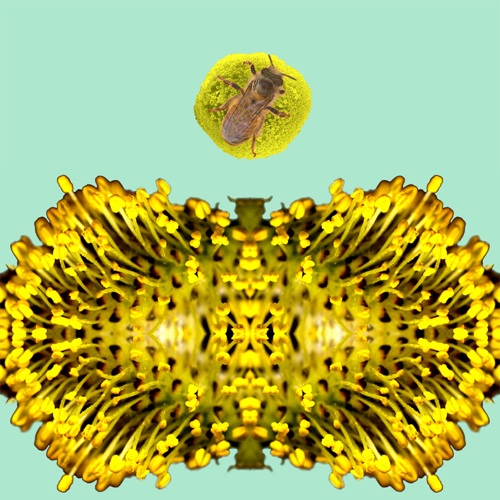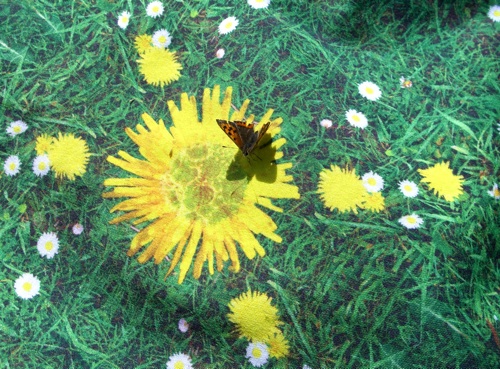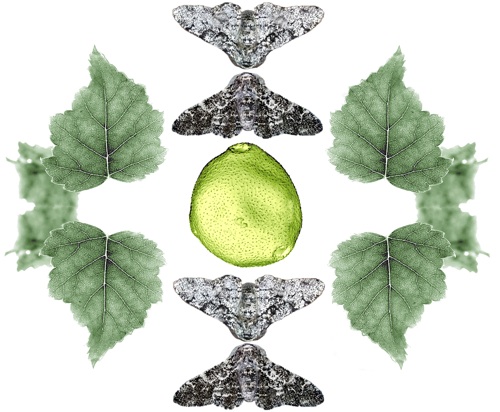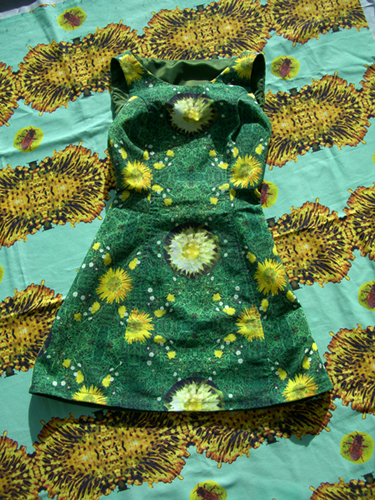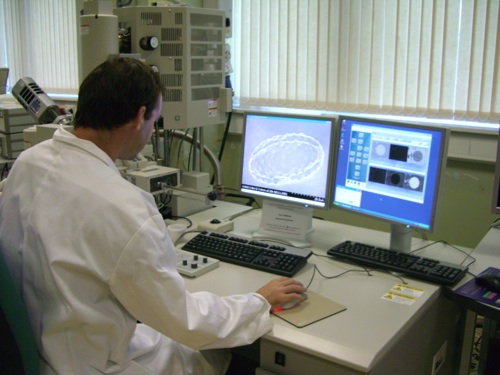Populations of insect pollinators such as bees, butterflies and moths and the plants on which they depend, are declining at alarming rates due to deleterious human activity. These symbiotic relationships must be protected. Through interdisciplinary collaboration with entomologists, botanists, microscopists, surface pattern technologists and print and coating engineers, artist Karen Ingham created a prototype range of clothing that, through public engagement with art and science, raised greater awareness of these important issues.The Pollinator Frocks Project (2011) was a limited edition collection of surface pattern designs and clothing based on scanning electron microscopy images of plant pollen grains linked to endangered pollinators. These digitally enhanced images formed the basis for a range of striking and unusual printed fabrics, which acted as ‘wearable gardens’. The fabrics were treated with pollinator food sources that replicated nectar, which was specially coated onto the fabric prior to cut and assemble as ‘pollinator frocks’. Working with technologists at the Welsh Centre for Printing and Coating the project involved research into olfactory attractants and iridescent coatings that mimic the way insects view flowers. The designs consisted of ‘day-wear’ for insects such as bees and butterflies and ‘evening-wear’ for moths. In the urban environment where garden space is limited and nectar rich plants rare, the clothing could be hung out as clothes are hung on a washing line, to act as an attractant to pollinators. As part of the public engagement events the fabrics were sited in a variety of environments and locations to raise public awareness of the issues and test the efficacy of the prototypes.
The collection was trialed in the UK over summer 2010 before being tested for a more substantial period in New Zealand’s Pukekura Botanic Parklands as part of the art, technology and ecology event SCANZ 2011. Following the public engagement aspect the project was archived until further funds are available for development. Pollinator Frocks was supported by: the art, science and technology network SATnet at Swansea Metropolitan University, the Welsh Assembly Government, and Wales Arts International.
